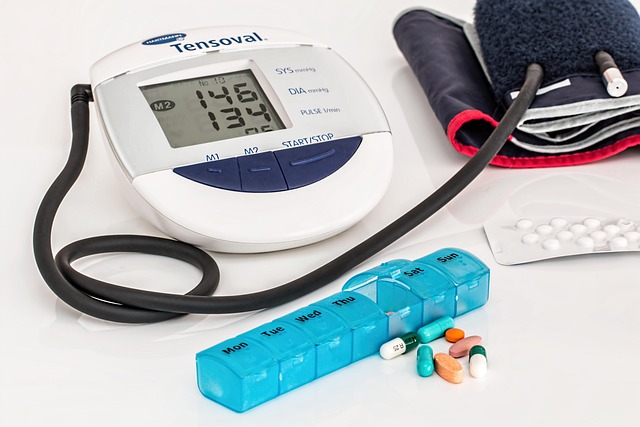Understanding Heart Disease Treatment: Key Approaches That Can Save Lives
Heart disease doesn’t happen overnight — and neither does recovery. With advances in modern medicine, treatment for heart conditions has evolved far beyond just prescriptions. From cutting-edge procedures to lifestyle changes that truly make a difference, today’s heart care is about restoring not just physical health, but also long-term vitality. Whether you’ve just been diagnosed or are managing a chronic condition, understanding your treatment options can be the first step toward a stronger heart — and a better life.

What are the go-to treatments doctors use for heart disease today?
When it comes to treating heart disease, doctors have a diverse arsenal at their disposal. Medications often form the first line of defense. Common prescriptions include statins to lower cholesterol, beta-blockers to reduce heart rate and blood pressure, and anticoagulants to prevent blood clots. For patients with coronary artery disease, aspirin therapy may be recommended to reduce the risk of heart attacks.
In addition to medications, doctors frequently advise lifestyle changes as a crucial component of heart disease treatment. This may involve adopting a heart-healthy diet, increasing physical activity, quitting smoking, and managing stress. For some patients, a combination of medication and lifestyle modifications can effectively manage their condition without the need for more invasive treatments.
When does heart disease cross the line into needing surgery?
While many cases of heart disease can be managed with medication and lifestyle changes, there are situations where surgery becomes necessary. Doctors typically consider surgical intervention when less invasive treatments fail to adequately control symptoms or when there’s a high risk of complications or death without surgery.
Common scenarios that may necessitate heart surgery include severe coronary artery blockages, heart valve problems, or aneurysms. Procedures like coronary artery bypass grafting (CABG), heart valve repair or replacement, and angioplasty with stent placement are among the most frequently performed cardiac surgeries. The decision to proceed with surgery is always based on a thorough evaluation of the patient’s overall health, the severity of their condition, and the potential benefits versus risks of the procedure.
Can changing your lifestyle really turn things around for your heart?
The impact of lifestyle changes on heart health cannot be overstated. Numerous studies have shown that adopting heart-healthy habits can significantly reduce the risk of heart disease and improve outcomes for those already diagnosed. A Mediterranean-style diet rich in fruits, vegetables, whole grains, and lean proteins has been linked to lower rates of heart disease and improved cardiovascular health.
Regular physical activity is another cornerstone of heart disease prevention and treatment. Even moderate exercise, such as brisk walking for 30 minutes a day, can lower blood pressure, improve cholesterol levels, and help maintain a healthy weight. Quitting smoking is perhaps the single most important lifestyle change a person can make for their heart health, as it rapidly reduces the risk of heart attack and stroke.
What is cardiac rehab — and does it actually help?
Cardiac rehabilitation is a structured program designed to help patients recover from heart attacks, heart surgery, or other cardiac events. It typically includes supervised exercise, education on heart-healthy living, and counseling to reduce stress and improve mental health. The program is usually conducted in an outpatient setting and can last several weeks to several months.
Research has consistently shown that cardiac rehab is highly effective in improving outcomes for heart disease patients. Participants often experience increased exercise capacity, reduced symptoms, improved quality of life, and a lower risk of future cardiac events. Moreover, cardiac rehab provides a supportive environment where patients can learn to manage their condition and make lasting lifestyle changes under the guidance of healthcare professionals.
Is it possible to stop heart disease in its tracks if caught early?
Early detection and intervention are crucial in the fight against heart disease. While it may not always be possible to completely “stop” heart disease, early diagnosis and treatment can significantly slow its progression and prevent complications. Regular check-ups, including blood pressure and cholesterol screenings, can help identify risk factors before they lead to serious problems.
For those with early signs of heart disease, aggressive risk factor modification can make a substantial difference. This may include strict control of blood pressure and cholesterol through medication and lifestyle changes, as well as management of conditions like diabetes that can exacerbate heart disease. In some cases, early intervention with procedures like angioplasty can prevent minor blockages from becoming more severe, potentially averting heart attacks or the need for more extensive surgery.
How do advanced technologies enhance heart disease treatment?
The field of cardiology has seen remarkable technological advancements in recent years, revolutionizing the way heart disease is diagnosed and treated. Minimally invasive procedures, such as transcatheter aortic valve replacement (TAVR), allow for complex heart valve repairs without open-heart surgery. This is particularly beneficial for older or high-risk patients who may not be candidates for traditional surgery.
Imaging technologies like cardiac CT and MRI provide detailed views of the heart’s structure and function, enabling more precise diagnosis and treatment planning. Additionally, wearable devices and remote monitoring systems allow for continuous tracking of heart rhythms and other vital signs, facilitating early detection of problems and more personalized care.
In conclusion, the treatment of heart disease has come a long way, offering patients a range of options from lifestyle modifications to cutting-edge surgical procedures. While the journey to heart health can be challenging, modern approaches provide hope for improved outcomes and better quality of life. By understanding these key treatment strategies, patients can work more effectively with their healthcare providers to develop a comprehensive plan for managing their heart health.
This article is for informational purposes only and should not be considered medical advice. Please consult a qualified healthcare professional for personalized guidance and treatment.




